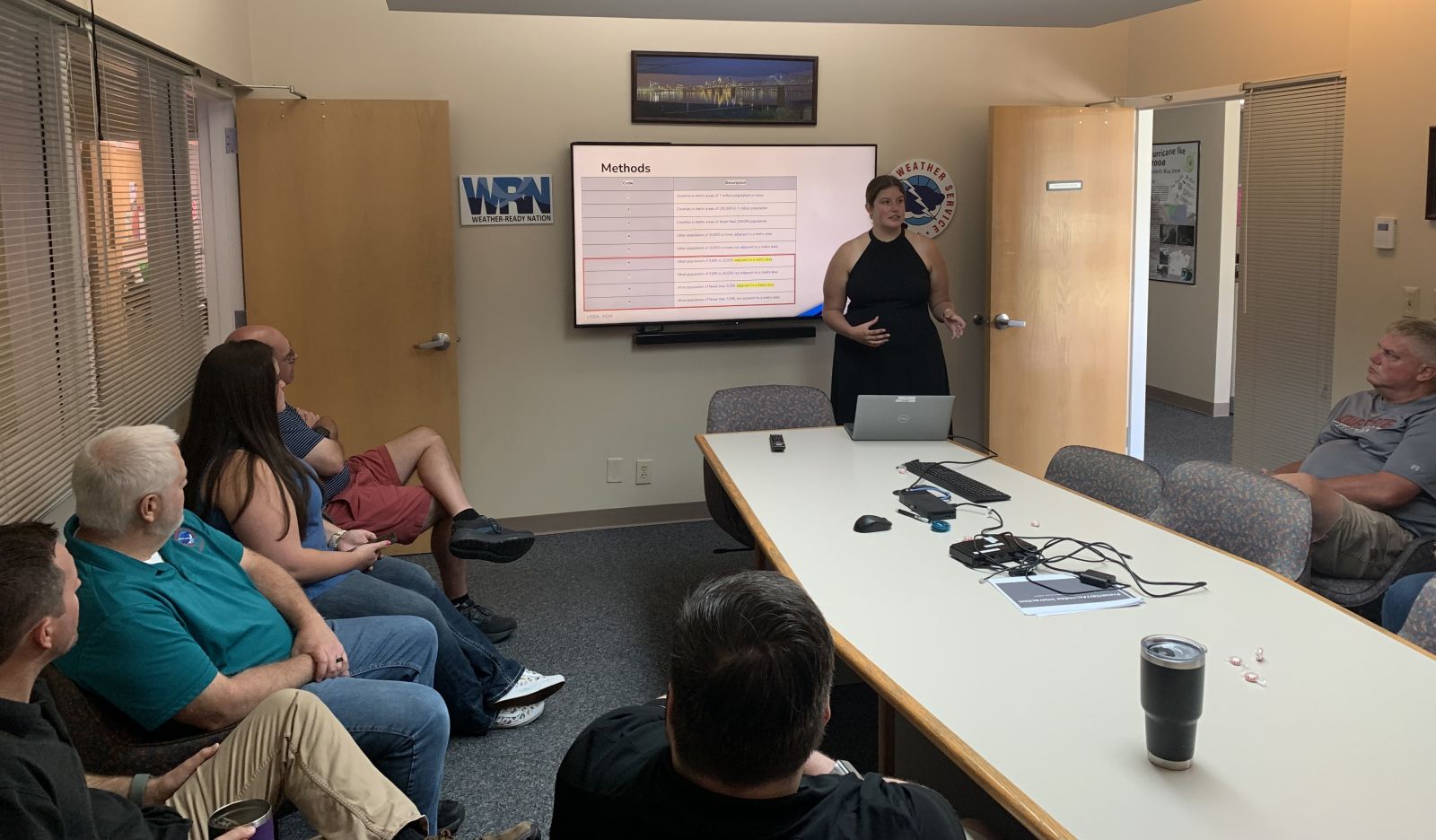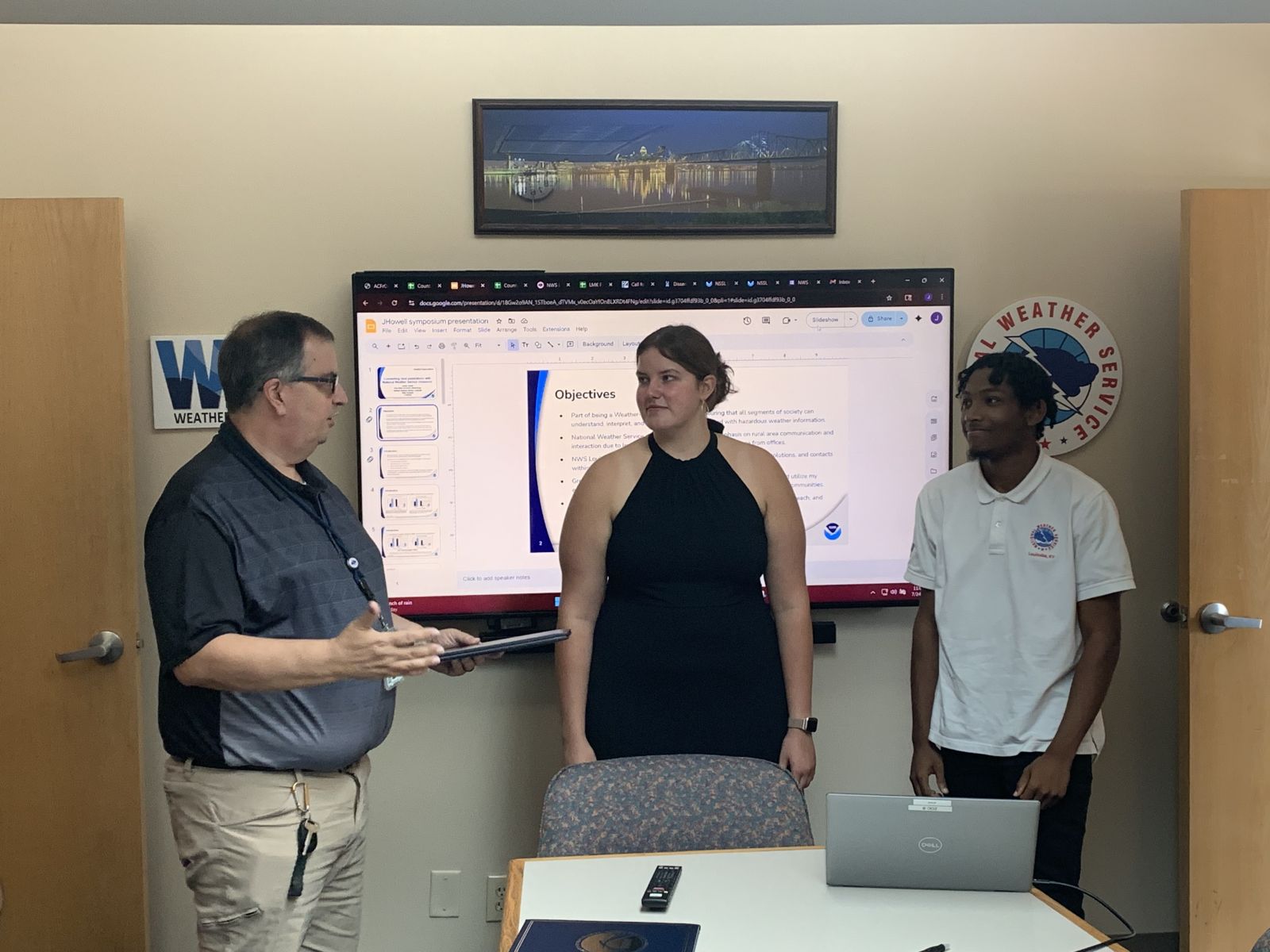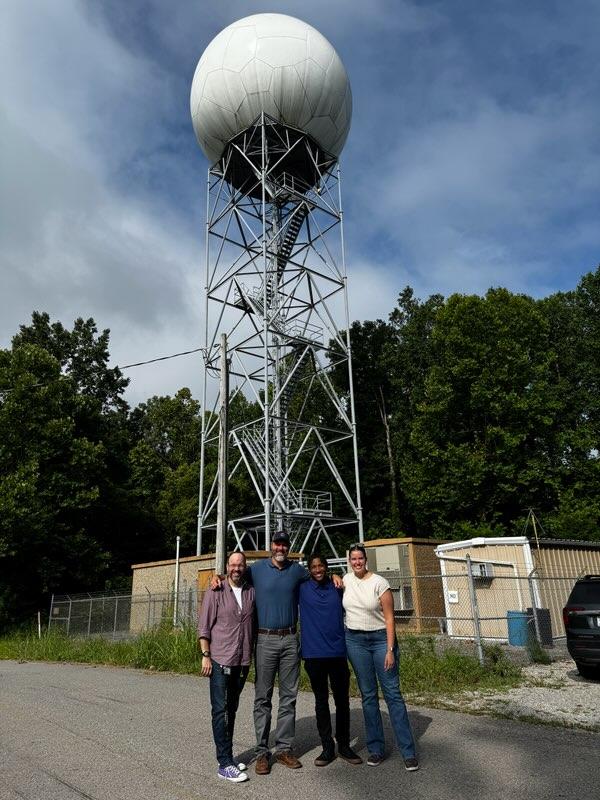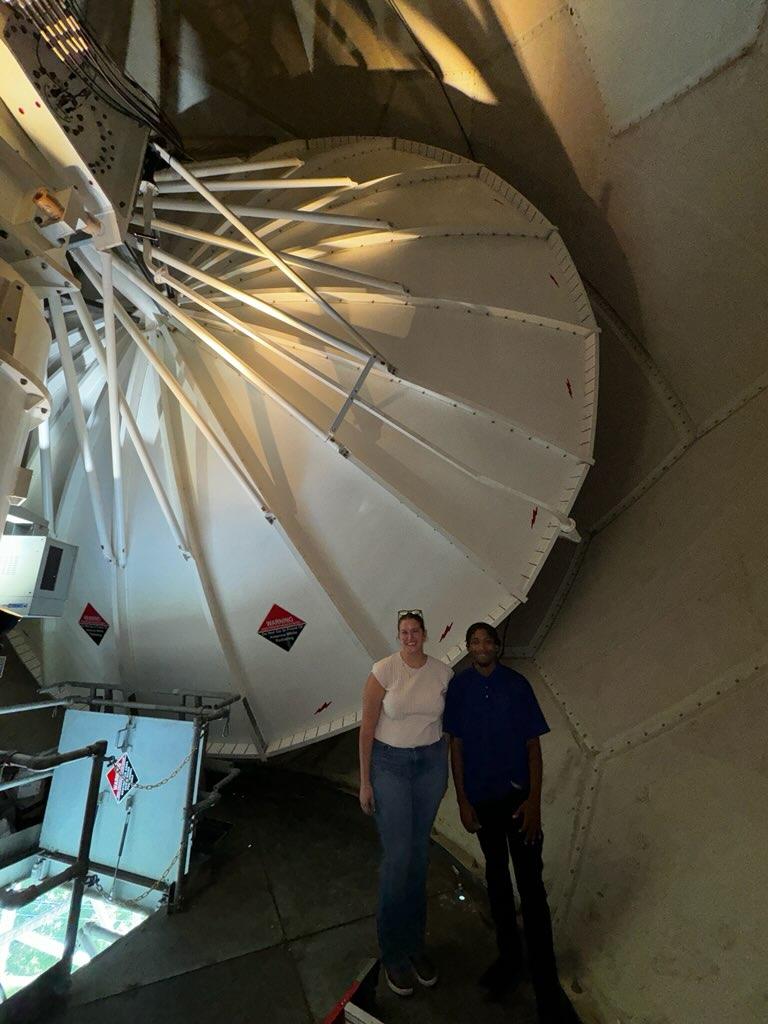For the summer of 2025, the National Weather Service office in Louisville (LMK) hosted two scholar students. Zion Powell, the office's first William M. Lapenta NOAA scholar, came to LMK with the goal of developing a national awareness campaign on hydroplaning. After the sudden passing of North Hardin High School band teacher Kelsey Dunn in a hydroplaning accident last year, our former Meteorologist in Charge, John Gordon, came up with the idea that we needed to do something to highlight to the public the dangers of hydroplaning. Zion looked through several research studies on accident patterns and statistics from the National Highway Traffic Safety Administration and the Federal Highway Administration and found common issues. Zion is working with those agencies as well as the Kentucky Transportation Cabinet and the American-Automobile Association (AAA) to develop a messaging campaign to help with public awareness.
The main advice for the public is to maintain proper pressure and tread on your tires. Deep tire treads reduce the hydroplaning risk, and they funnel more water away and allow your tires to maintain contact with the road. Keeping your tires balanced at the proper pressure is important too, because both too high a pressure and too low allow less contact with the roads at higher speeds. If caught in a hydroplaning situation, SLOW DOWN! Remember that speed limits are designed for ideal road conditions. Wet roads are NO LONGER IDEAL! Don't slam on the brakes and avoid sharp turning. If you have a traction control system make sure it's enabled. Also, disable your cruise control.
Look for more graphics and information to come out of the office as the awareness campaign continues!

Zion Powell presenting to the staff on his summer work.
Jordan Howell came to LMK as a Ernest F. Hollings NOAA scholar. Her project focused on how we can better reach our more rural communities with weather information, part of getting our nation more Weather-Ready. Jordan contacted and surveyed many of our rural county emergency managers to find out what they think their greatest concerns are. After collecting those data, Jordan identified areas of potential outreach, specifically focusing on rural areas. The LMK area has several counties labelled as urban/metro areas but also about half are considered rural. In those counties, there are spots where cell phone service is very poor and NOAA Weather Radio service is limited too. More traditional methods of weather information is used, such as TV, local radio stations, and family/friends contacting each other.
After the initial data collection went out, Jordan worked more closely with the Hart County emergency management, because several communities could be engaged at once. Out of this collaboration and the data she collected, Jordan suggests we do more to educate rural youth, specifically developing partnerships with agricultural and science teachers. More rural community engagement would benefit getting our forecasts that last mile as well. Earlier information to those rural communities about upcoming weather hazards would help the more traditional means of communications work better, such as with the big tornado outbreak in December 2021. On storm surveys, LMK heard many stories of people knowing about the threat for severe weather ahead of time and making plans to shelter when the storms hit (or even well ahead of time).

Jordan presenting on her work this summer.
During their time at LMK, Jordan and Zion were able to shadow forecasters, help out in severe weather situations with answering our phones and issuing storm reports as well as watch as forecasters issued statements and warnings. They also had to run through a weather situation, image below, seeing some of the new ways LMK forecasters work to identify tornado potential in squall lines.

Ryan Sharp leading Zion and Jordan through a radar simulation
We appreciate having the chance to learn from and work with these excellent students, and look forward to how their careers evolve.

Acting Meteorologist in Charge Ryan Sharp providing Jordan and Zion with certificates recognizing their efforts at LMK.


Jordan and Zion visiting the WSR-88D at Fort Knox along with forecaster Brian Neudorff and Observation Program Leader Cliff Goff.